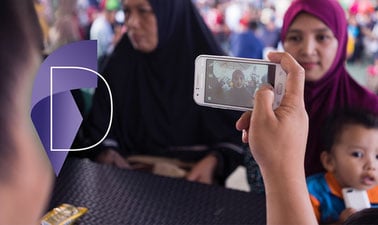- Level Awareness
- Ratings
- Duration 35 hours
- Course by École polytechnique fédérale de Lausanne
- Total students 1,863 enrolled
-
Offered by

About
As humanitarian practitioner, you are interested in technology but you feel it should be used more responsibly? You are worried people tend to jump on opportunities without properly considering risks? This MOOC is for you!
This course will first introduce you to the basics of computer and data science and help you understand what happens underneath the surface when using a computer, the internet or social media. You will then dive into some more complex technologies like artificial intelligence, cryptography or distributed ledgers. Equipped with this knowledge, you will then explore with world-leading experts how to use technology responsibly, covering topics such as accountability, ethics, data protection, the do no harm principle and inclusion.
What you will learn
This MOOC will initially provide you with a holistic understanding of Information and Communication Technologies (ICT) – including:
- Computers, network, internet and cloud computing
- Software, data and digital transformation
- Cryptography, cybersecurity and privacy
- Artificial Intelligence and Distributed Ledgers
Once you have a better grasp of technology, you will explore these topics through a humanitarian lens:
- Ethics, accountability and the “do no harm” principle
- Challenges for humanitarian principles in the digital age
- Data protection and cybersecurity
- Digital inclusion and human centered design.
Syllabus
- The ABC of digital - part 1 Infrastructures
- The ABC of digital - part 2 Solutions and data
- Security and privacy in the digital realm
- Technological trends
- Humanitarian organizations and technology
- People and technology
Auto Summary
"Humanitarian Action in the Digital Age" is an edX course within IT & Computer Science. It equips humanitarian practitioners with foundational knowledge in computer and data science, and delves into advanced technologies like AI and cryptography. The 35-hour course emphasizes responsible technology use, covering ethics, accountability, and data protection. Ideal for professionals seeking awareness-level insights, it offers a professional subscription option.

Sonja Loeffelmann-Sepahi

Grégoire Castella

Philippe Stoll


